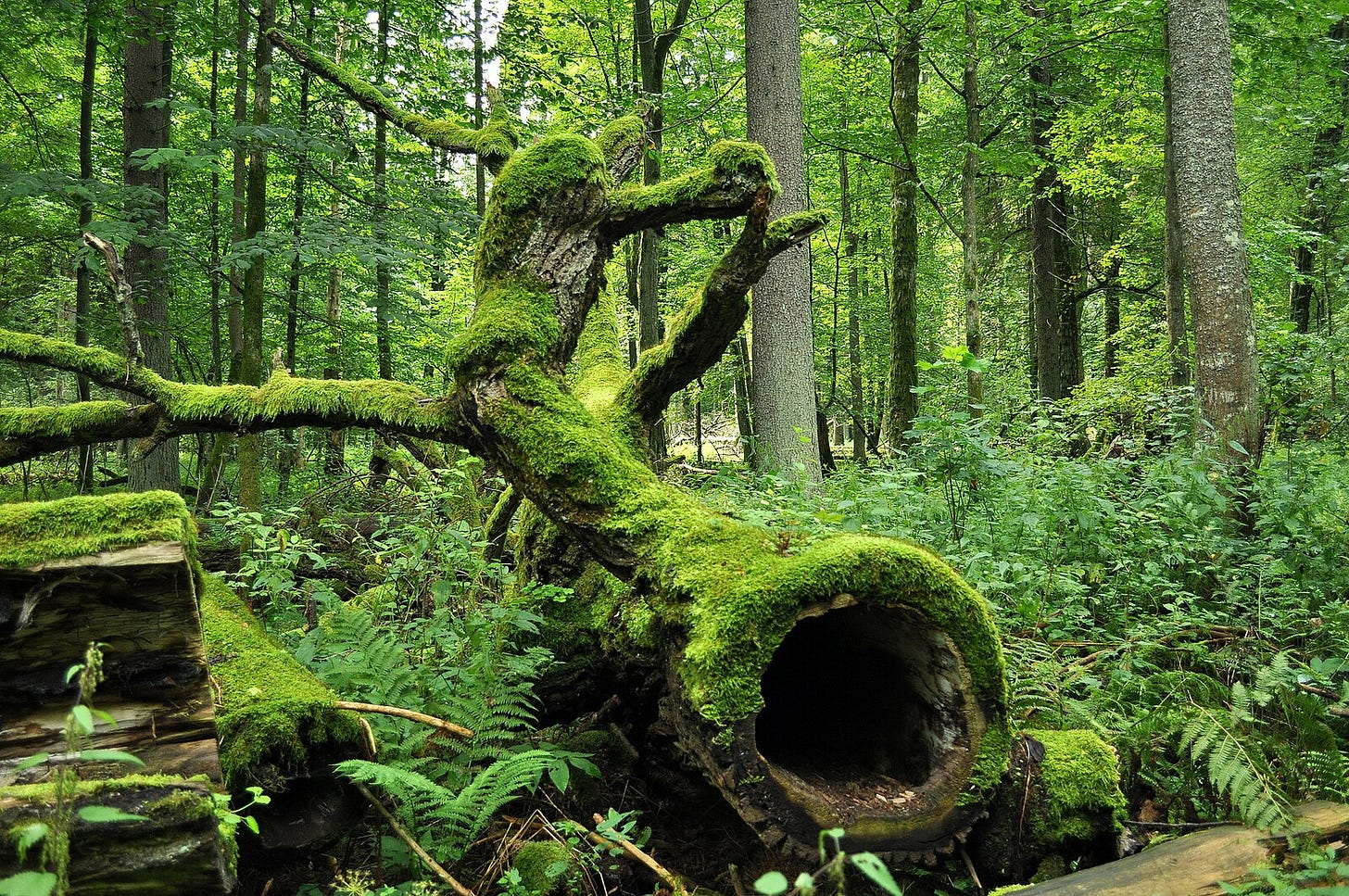Dear earthlings,
We are writing to you from the deep jungle and bringing a mix of good and bad news. Last week Ecuadorians voted in a nation-wide referendum on whether to ban oil operations in the Amazon’s Yasuni National Park. In a historic decision the people of Ecuador voted for the jungle and against drilling 👏.
This makes us wonder what would’ve happened if the EU had launched a referendum on the Nature Restoration Law instead? Below a story that explains the intricacies behind the EU’s new law and why we’re not celebrating it as a victory.
🗞️ In Climate News
🇰🇪World’s largest soil carbon removal project enlists Kenyan pastoralists
🇪🇸 Wildfires in Tenerife, Spain force thousands to evacuate.
💸 The richest Americans account for 40 percent of U.S. climate emissions.
🚱 Region of Acre, Amazonia, hits historic drought of 70 days —reporting directly.
⛽ Fossil fuel firms move to dismiss climate lawsuit in Hawaii as Maui faces wildfires.
📈 Cool Trends
♾️ eco-stories
🇪🇺 Restoring Europe
A key part of the European Union’s Biodiversity Strategy for 2030, the Nature Restoration Law is “the first continent-wide, comprehensive law of its kind.” The EU first published the Biodiversity Strategy for 2030 in May 2020, part of what it called the “Green Deal”, also referred to as Sustainable Europe Investment Plan (SEIP), a series of proposals and policies with the ambition of no net emissions of greenhouse gases by 2050 and for economic growth to be decoupled from resource use. In the face of over half of Europe’s endemic trees being threatened with extinction , and 81% of protected habitats and 63% of species in the EU having a poor or bad conservation status, as well as the extreme weather events of the deepening climate crisis, the EU felt the need to sanctify climate action through policy.
On June 22 2022, the European Commission published the Nature Restoration Law, a proposal for legally binding targets to revive forests, wetlands, sea and landscapes that have been aversely affected by human development, with emphasis on those with the most potential to capture and store carbon, and that prevent and reduce the impact of natural disasters.
🌏 The Culture Club
📺 What we’re watching: Guardians of the Amazon
📸 Profile of the week: @waoresistencia
📚 What we’re reading: The Wizard of the Upper Amazon, Manuel Cordova-Rios
🤯 Scary fact we learnt this week: You can see fast fashion’s giant landfill in Chile from space.






